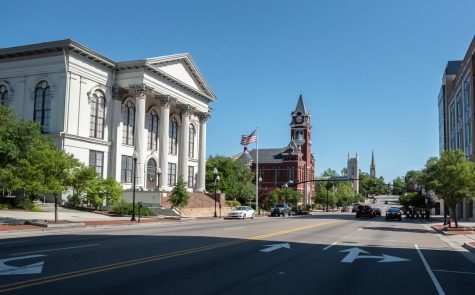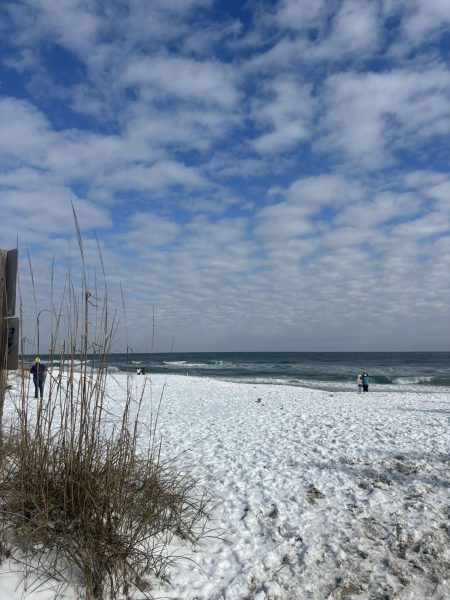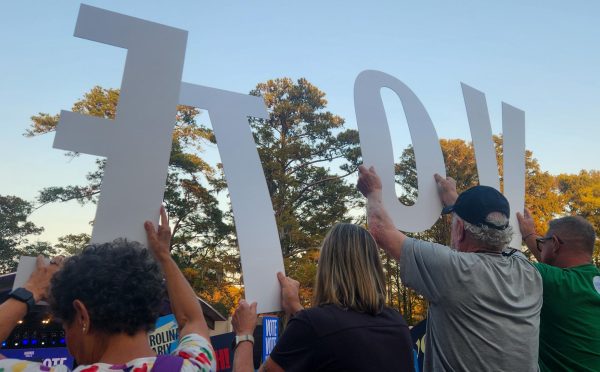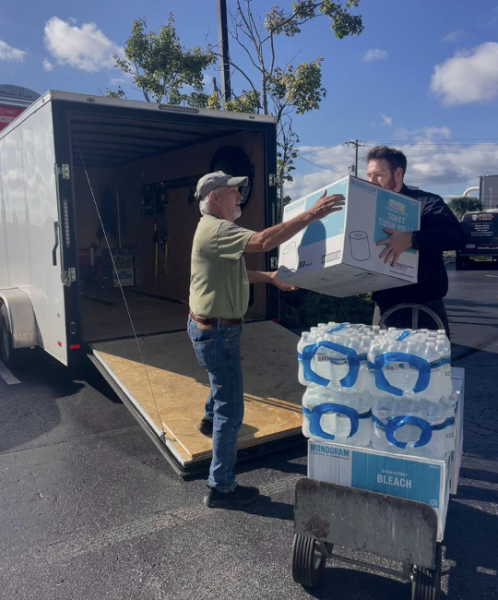As North Carolina ranks ninth nationally for human trafficking, education may be a solution
In the 2022 report released by the National Human Trafficking Hotline (NHTH), North Carolina ranked ninth in the nation for human trafficking. As of 2021, 922 signals were received by NHTH, 318 of those being from victims or survivors of human trafficking.
The top venues for human trafficking included massage spas, hotels, pornography, residence-based commercial sex, online advertisements and escort/delivery services. In N.C., hotel-based venues are the most common. Adult females accounted for a majority of human trafficking victims, including people of both domestic and foreign origins.
There are many suspected reasons for the high rates of human trafficking in Wilmington, according to Dawn Ferrer and Tania Smith, including but not limited to the highway systems (95, I-40, 74, 76), the agricultural industry (cross of labor and sex trafficking), strip clubs near military bases, high numbers of foster care children and attracting an influx of travelers during tourist season.
Dawn Ferrer is the Executive Director for A Safe Place, a nonprofit that works with women who have been sex trafficked or commercially exploited. As a graduate of UNCW, she started as a volunteer and worked as a case manager and program director before becoming executive director. She works to promote awareness and train first responders and others who might encounter a trafficking victim, so they understand victim identifiers and how to assist them. According to Ferrer, most survivors have experienced childhood physical and/or sexual abuse.
Signs of human trafficking can be both obvious and disguised among any demographic, including children. A group of young adults traveling with an older man or woman or younger individuals dressing provocatively where the occasion may not be acceptable could be a sign of trafficking. Ferrer also said that some victims may not be aware of their location from being moved around constantly.
“A person could be with someone that is controlling the situation, controlling the conversation, their I.D., money and speaking for the individual,” Ferrer said. “Some obvious things could be signs of physical abuse, sleep deprivation, poor hygiene, and when there is substance abuse involved…there are some skin infections that come with that.”
Behavioral changes can be an indicator of human trafficking including submission and extreme nervousness. Isolation can be an identifiable symptom of online trafficking along with running away from home or pulling away from friend groups or family members.
In her role, Ferrer said there was “a huge increase,” in predatory and trafficking activity during the Covid lockdown, especially through online communications such as social media or gaming chats to target potential victims, and particularly boys in gaming chats. As a result of the increase in social media outreach from predators, A Safe Place has implemented training sessions for parents and middle to high-school-age children called “Online Predators and Social Media.”
“I think kids don’t really understand the dangers,” Ferrer said. “Just giving somebody one little detail about yourself can open up a huge door for them to find out so much more about you.”
Understanding and recognizing vulnerabilities, especially online, can help foster more awareness about human trafficking and provide more protection.
“Awareness is first and foremost, and recognizing this is out there,” Ferrer said. “But it is simple things like keeping your profiles private and not accepting friend requests from people you have no idea who they are because they’re trying to gain your trust in any way they can. So, they will start a conversation with you talking about things they’re seeing on your social media so immediately that drops your defenses.”

Tania Smith, CARE’s Lead Advocate educates the community and dispels trafficking myths. She expressed concerns over social media use as a tactic for traffickers because people can “hide so much from others and gain so much information from others.” One myth that Smith wants to diminish is that someone will kidnap you off the streets; Typically, traffickers will look for vulnerabilities as, “it takes a lot more information gathering than people think,” Smith said.
UNCW provides resources to assault victims through its Collaboration for Assault Response and Education (CARE) office. The CARE office is a confidential resource for those who may reach out immediately or years after an incident and focuses on providing individualized support for survivors after an assault has occurred.
According to Smith, people who tend to have more connections in the community are less likely to appeal to traffickers because people would notice they are missing. People typically targeted will be vulnerable and do not have many connections.
“A lot of time the person they are trying to target is someone who is vulnerable, who has something that they can exploit,” Smith said. “People may be thinking they are entering an employment opportunity or a relationship so what they think they’re entering into is something that might be normal and healthy, and then once involved and now something has happened where it makes it hard to exit right.”
Another factor of education is breaking down stereotypes of what a human trafficking victim looks like. Some victims can still perform day-to-day activities or go to school but still be a victim of human trafficking because they may have something being held against them, such as substance abuse. People can miss signs of human trafficking because they are trying to help someone with substance abuse but are unaware of the deeper issue. Some victims may refer to their traffickers as their boyfriend, girlfriend or significant other.
“When looking at people, look at those extremes,” Smith said. “They were one way and now they are a completely different way because sometimes it may be the opposite of what you think…be mindful of the interactions you have with strangers.”
In Smith’s experience in the community, she expressed that trafficking typically occurs with an interaction of some sort before trafficking occurs, it is rarely a “grab and go.” It is advised to always trust your gut and report incidents that may feel uncomfortable because even if they may not be related to human trafficking, they could be something else that can be unsafe.
Awareness and education are solutions to helping debunk myths about human trafficking and redefining what trafficking looks like. As human trafficking cases rise, educating people about being safe online and having resources can equip people with the knowledge to identify and report trafficking.
If you see something, call 911 for immediate assistance. CARE can be contacted at 910-962-CARE. Emergency assistance is also available by calling the CARE responder at 910-512-4821. If you have information about a potential trafficking situation, call the National Human Trafficking Resource Center at 1-888-373-7888 or text 233733.











